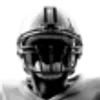Indianapolis Colts: nfl FUTURES & BETTING ODDS

IND
Indianapolis Colts
0-0
Roster
Darrell Baker

JuJu Brents

Anthony Richardson

Marcel Dabo

Trevor Denbow

Dallis Flowers

Wesley French

Ethan Fernea

Isaac Taylor-Stuart

Josh Sills

Lewis Kidd

Josh Downs

Segun Olubi

Tyler Goodson

Rodney Thomas

Drew Ogletree

Eric Johnson

Bernhard Raimann

Jelani Woods

Nick Cross

Alec Pierce

Grant Stuard

Austin Ajiake

Matt Goncalves

Adonai Mitchell

Laiatu Latu

Michael Tutsie

Isaiah Land

Jordan Murray

Zavier Scott

Liam Anderson

Kendell Brooks

Terrell Bynum

Trey Sermon

Jake Witt

Jaylon Jones

Ameer Speed

Titus Leo

Daniel Scott

Will Mallory

Evan Hull

Adetomiwa Adebawore

Blake Freeland

Kenny Moore

Eric Tomlinson

Al-Quadin Muhammad

Derek Rivers

Samson Ebukam

Jaydon Mickens

Ronnie Harrison

Taven Bryan

Grover Stewart

Braden Smith

Quenton Nelson

DeForest Buckner

Zaire Franklin

Luke Rhodes

Mo Alie-Cox

Rigoberto Sanchez

Tyquan Lewis

Ryan Kelly

Jared Veldheer

Genard Avery

Ike Boettger

Joe Flacco

Danny Pinter

Cameron McGrone

Kylen Granson

Dayo Odeyingbo

Will Fries

Sam Ehlinger

Kwity Paye

Jack Anderson

Raekwon Davis

Julian Blackmon

Jonathan Taylor

Chris Lammons

Michael Pittman

Henry Black

Tyrie Cleveland

Arlington Hambright

Matt Gay

Ashton Dulin

E.J. Speed

Juwann Winfree

D.J. Montgomery





